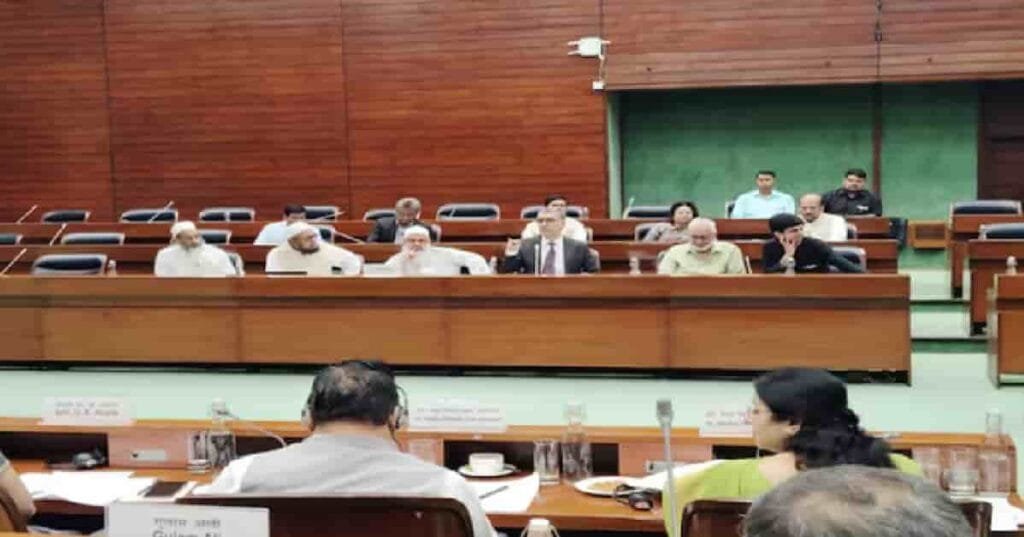The Finance Minister of India plays a crucial role in the country’s economic management and policy-making. Here’s an overview of the key responsibilities and roles of the Finance Minister:
Key Responsibilities of the Finance Minister
Budget Preparation and Presentation
Formulates and presents the annual Union Budget, outlining government revenue, expenditure, and fiscal policies. This budget is crucial for economic planning and resource allocation.
Economic Policy Formulation
Develops policies aimed at promoting economic growth, stability, and sustainability. This includes formulating fiscal policies (taxation and spending) and monetary policies in collaboration with the Reserve Bank of India (RBI).
Taxation and Revenue Management
Oversees the administration of direct and indirect taxes. This includes proposing tax reforms, implementing tax policies, and ensuring effective tax collection to maximize revenue.
Public Expenditure Management
Monitors government spending and ensures that funds are allocated effectively to various sectors (infrastructure, health, education, etc.) to achieve economic objectives.
Debt Management
Responsible for managing the country’s external and internal debt. This includes making decisions related to borrowing and repayment to ensure fiscal sustainability.
Financial Sector Regulation
Plays a significant role in regulating and overseeing the financial sector, which includes banks, insurance companies, and capital markets. The Finance Minister works with regulatory bodies such as the Securities and Exchange Board of India (SEBI) and the RBI.
Foreign Investment and Trade Policy
Formulates policies to attract foreign direct investment (FDI) and enhance India’s trade relations with other countries. This includes negotiating trade agreements and addressing trade imbalances.
Economic Reform Initiatives
Initiates financial reforms aimed at improving ease of doing business, promoting entrepreneurship, and fostering innovation. This may involve changes to labor laws, tax systems, and regulatory frameworks.
Coordination with Other Ministries
Coordinates with various ministries and departments (like planning, rural development, and commerce) to implement economic policies effectively, ensuring alignment with the government’s overall agenda.
Public Communication and Accountability
Communicates the government’s economic policies and decisions to the public and stakeholders. The Finance Minister must explain complex financial matters in an accessible manner and be accountable for financial mismanagement or economic challenges.
FAQs About the Finance Minister in India
1. What is the main role of the Finance Minister of India?
The primary role of the Finance Minister is to manage the country’s economic policies, including budget preparation, taxation, public expenditure, and overall financial management.
2. How is the Finance Minister selected in India?
The Finance Minister is appointed by the Prime Minister of India and is typically a member of the ruling party in the Parliament.
3. What are the key responsibilities of the Finance Minister?
Key responsibilities include preparing the annual Union Budget, formulating economic policies, managing government finances, overseeing taxation and revenue collection, and regulating the financial sector.
4. What is the annual Union Budget?
The Union Budget is a comprehensive financial statement that outlines the government’s expected revenue and expenditure for the upcoming financial year. It is presented by the Finance Minister in Parliament.
5. How does the Finance Minister influence economic policy?
The Finance Minister formulates fiscal and economic policies, which can impact growth, inflation, employment, and public welfare. This includes decisions on taxation, spending, and reforms to enhance economic stability.
6. What role does the Finance Minister play in debt management?
The Finance Minister manages the country’s public debt, including decisions on borrowing and repayment to ensure fiscal sustainability and maintain investor confidence.
7. How does the Finance Minister affect taxation in India?
The Finance Minister proposes tax reforms, formulates tax policies, and oversees the administration and collection of taxes, influencing both direct and indirect taxation.
8. What is the significance of the Finance Minister in foreign investment?
The Finance Minister plays a crucial role in creating a conducive environment for foreign direct investment (FDI) by formulating policies that attract investment and negotiating trade agreements.
9. How does the Finance Minister coordinate with other ministries?
The Finance Minister collaborates with other government ministries and departments to implement economic policies and ensure alignment with the broader government agenda.
10. What challenges does the Finance Minister face?
Challenges include managing economic instability, addressing fiscal deficits, balancing taxation and public spending, and navigating political dynamics while ensuring business confidence and growth.
11. Can the Finance Minister initiate reforms?
Yes, the Finance Minister can initiate economic reforms aimed at improving the business environment, enhancing financial inclusion, and fostering sustainable development.
12. What impact does the Finance Minister’s budget speech have?
The budget speech can significantly influence market sentiment, investor confidence, and economic forecasts, affecting stock markets and economic policies.
Conclusion
The role of the Finance Minister is multifaceted and critical to India’s economic health and development. Through strategic decision-making, policy formulation, and effective communication, the Finance Minister influences both domestic and international economic landscapes.


